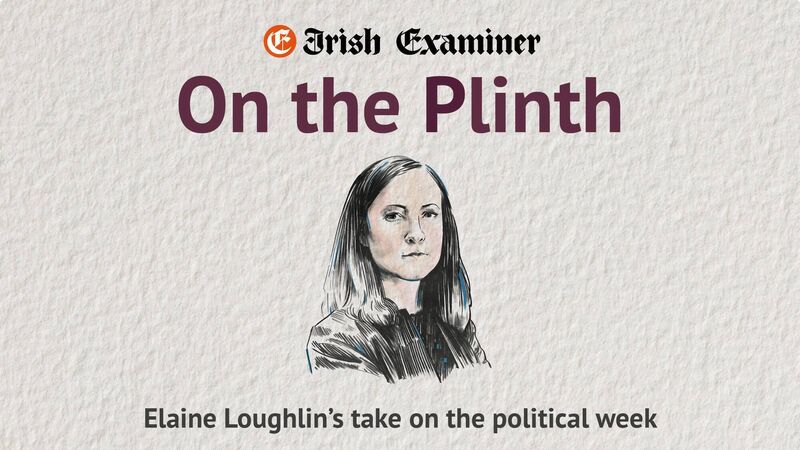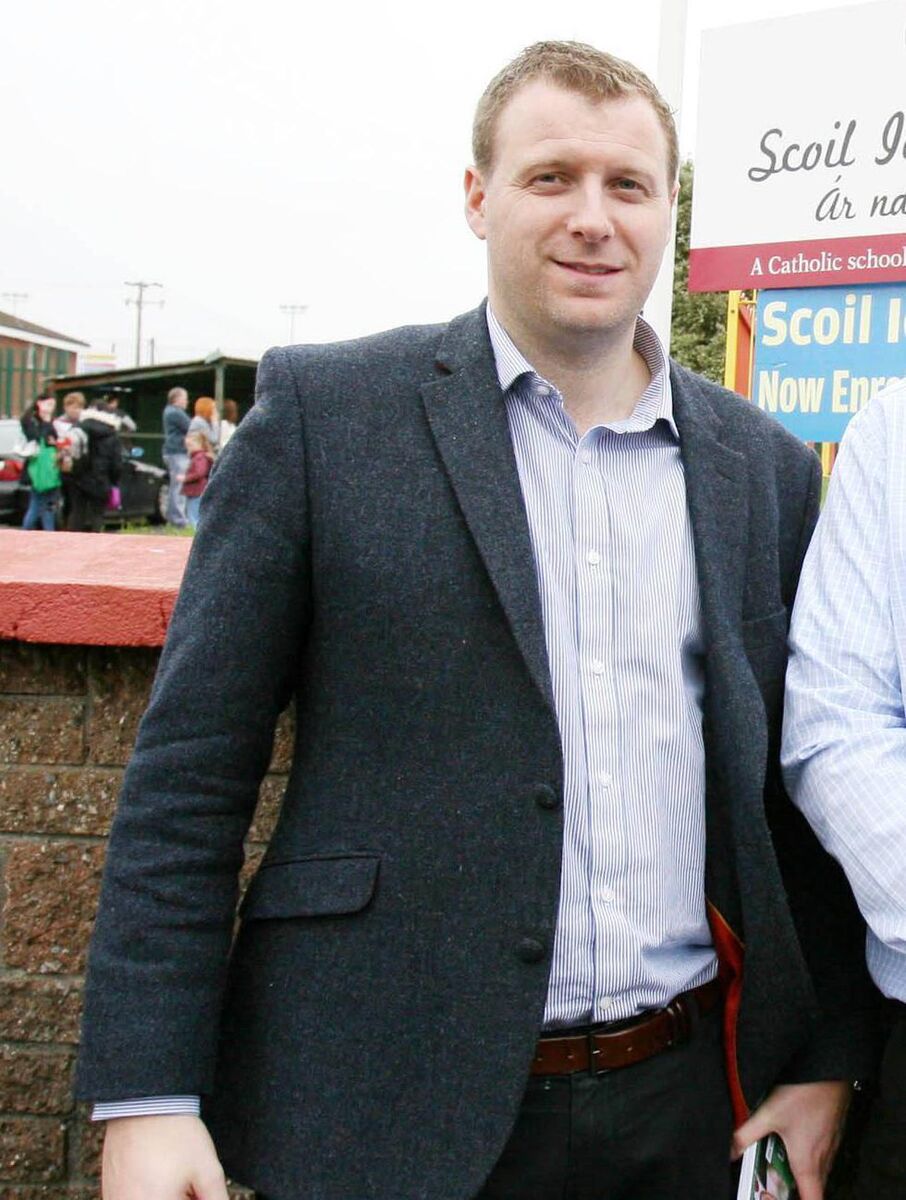On The Plinth: Children with special needs are not logistical problems to be solved

Sometimes a few brief words can stop you in your tracks.
For our On The Plinth readers, here is something a bit different to our "Did you know?" section.
The nine short lines of Laura Gilpin's poem are a thought-provoking and beautiful depiction of a two-headed calf.
The poet paints a perfect summer evening, the calf is snug in the north field with his mother and “as he stares into the sky, there are twice as many stars as usual”.
Poems are, of course, wide open to interpretation.
But what makes Gilpin's poem so powerful is the extreme disjoint between the unconditional love of a parent who is blind to any differences and the calf being viewed as a “freak of nature” to be rolled up in newspaper and brought to a museum by the outside world.
Too often children, with all the joy, colour and value they have to offer society, stop being viewed as children when the institutions and so-called supports of the State step in.
Children with disabilities or those in need of special education are treated as statistics and logistical problems to be solved.
This week, the Dáil will debate a motion calling on the Government to introduce emergency measures to ensure all children have an appropriate school place this September.
The right to education is clear-cut.
It is a right which is enshrined in Bunreacht na hÉireann.
The Education Act also notes that children with special needs have the same rights to appropriate education as those without.
In 2001, the High Court ruled that every person in the country has a constitutional right to free appropriate primary education based on need.
The judgment confirmed that this was a fundamental right which was not limited by the availability of resources.
Finally, Article 24 of the UN Convention on the Rights of Persons with Disabilities details the obligation on the State to ensure that “persons with disabilities are not excluded from the general education system on the basis of disability, and that children with disabilities are not excluded from free and compulsory primary education, or from secondary education, on the basis of disability”.
Yet year after year as most parents stress about getting the school uniform ready and the book list sorted, another group is left in the limbo of not knowing whether their child will have a school to go to come September.
In a bid to address this, Minister of State Josepha Madigan recently announced on Twitter that 'special education centres' would be established to cater for children with additional needs.
Thanks to our Special Education Consultative forum for meeting this morning. As I've reassured them, there are lots of proposals and ideas that come from the department and we want to find solutions that work for children with special educational needs
— Josepha Madigan ⚖️✨ (@josephamadigan) May 26, 2022
The proposal was roundly rejected by disability groups and legal experts who have claimed the five centres across the country would segregate children and would be unconstitutional.
In the wake of the controversial announcement, autism charity AsIAm launched a snap survey which revealed that at least 267 children do not have an appropriate school place for September 2022.
Of these, just 26 said they expect to have been offered an appropriate school place before the autumn term. Some respondents reported receiving as many as 20 rejection letters from schools.
It is in this context that the idea of the emergency special education centres was floated as a solution.
This, in 2022, is the State stepping in?
After years of moving towards a model of education which encourages integration and inclusion, what appears to have been a half-baked, knee jerk measure was announced without consultation.
If introduced, it will set us significantly backwards on the road to equality.
Even the term 'special education centre' has been described as “backward” by children's rights lawyer Gareth Noble.
“It doesn’t meet the constitutional standard of a suitable and appropriate education.
“It is completely contrary to the UN Convention.
“There wouldn’t be a court in the land I can safely predict would stand over this,” he said.
This is not something that simply crept up on the Department of Education, as Fianna Fáil TD Pádraig O'Sullivan said: “We know we're going to be in this situation again next year. It's been the same over the two previous years that I've been a TD, it has been the same this summer.”
He said a “softy softly” approach to schools who refuse to accept children can no longer be tolerated.

There is currently an option open to the minister of the day who can use what is called a Section 37a to direct schools to establish additional classes for children with special needs.
However, in reality it can take anything up to a year of consultation with a school before it is finally compelled to take in pupils.
“We need more streamlined legislation to take out that cumbersome kind of back and forth,” Mr O'Sullivan said of Section 37a, adding that in a lot of cases reaching local solutions through direct contact with schools could solve the problem.
Legislative change is required but it will be too late for those children due to begin school in September.
Amid a massive criticism from representative organisations, Ms Madigan backtracked slightly to say details of the emergency centres had leaked into the public domain before her department had an opportunity to discuss it with stakeholders.
She stressed that the plan was “very much in its infancy” and other proposals are also being considered.
Taoiseach Micheál Martin and Education Minister Norma Foley gave assurances to members of Fianna Fáil at a recent parliamentary party meeting that the measure, at least in its current format, will not be going ahead.
In fact, it is understood that the Fianna Fáil minister was completely unaware of the proposal before it appeared on Ms Madigan's social media page.
Regardless of whether or not the Fine Gael hand is talking the Fianna Fáil hand, parents need clarity around their children's education.
They need access to education, which the Constitution clearly states is a right not a privilege.
Sean T O’Kelly became the second President of Ireland after contesting the election against General Sean Mac Eoin and Dr Patrick McCartan.
A General Election marked a third successive victory for Fianna Fáil, under the leadership of Jack Lynch. The reported that Mr Lynch "led his Ministers back to office with a splendid personal performance".
Jack Lynch's party re-entered Government. The detailed that "against all the odds" a landslide victory in the general election brought Fianna Fianna Fáil back to power after a lapse of four years. Fianna Fáil's total first preference vote represented 50.63%, which was up from the 46.24% share they won in the 1973 election.
Irish voters approved the Maastricht Treaty in a referendum.
Fine Gael leader Enda Kenny survived an attempt to oust him after nine members of Fine Gael came out to say they had no confidence in him.
After last week's recess, it’s back to business for politicians.
- Cabinet meets at its usual Tuesday morning time before the Taoiseach goes into the Dáil for Leaders’ Questions. It is likely that Brexit will dominate business after the UK government yesterday published proposed legislation that would give ministers the power to override parts of the Northern Ireland protocol.
- Disabilities services and education has been in the news of late and Sinn Féin is bringing forward a motion to provide appropriate school places for all children.
- With the cost of petrol and diesel rocketing, questions to Transport Minister Eamon Ryan will be worth tuning into in the evening.
- Members of the Ukrainian Parliament will address the Seanad from 1pm. Meanwhile, the Joint Committee on Education will discuss the education and support provision for displaced Ukrainian students with the Children's Ombudsman, Barnardos, the Irish Red Cross, the Irish Refugee Council and other groups.
- The Dáil will debate a timely motion on energy security which has been tabled by the Rural Independents group. A somewhat related discussion will be held at the enterprise, trade and employment committee on the issue of Ireland's offshore wind industry.
- The health committee will receive an update from the HSE and Department of Health officials on the implementation of Sláintecare, focusing on regionalisation.
- French ambassador to Ireland, Vincent Guérend, will attend the Foreign Affairs Committee.
- With budget kites already flying high, members of the Opposition will be eager to grill Finance Minister Paschal Donohoe and Minister for Public Expenditure Michael McGrath who are both taking questions in the Dáil early in the morning.
- There will be statements on special education needs in the afternoon.
- Expect some lively exchanges when representatives of the National Paediatric Hospital Development Board, responsible for the new National Children's Hospital come before the Public Accounts Committee.
















